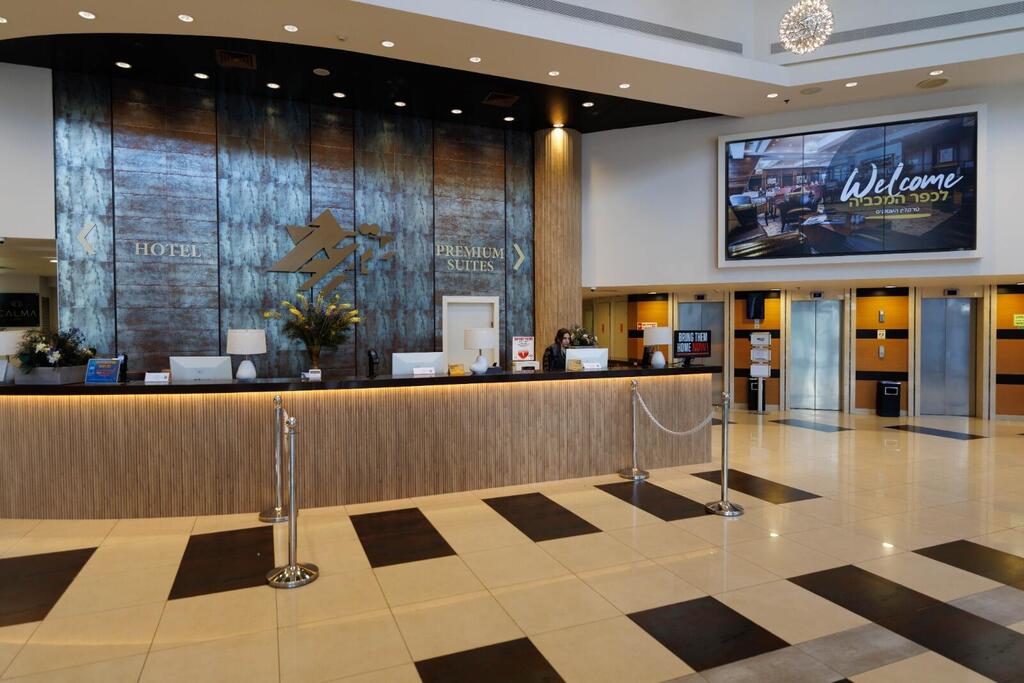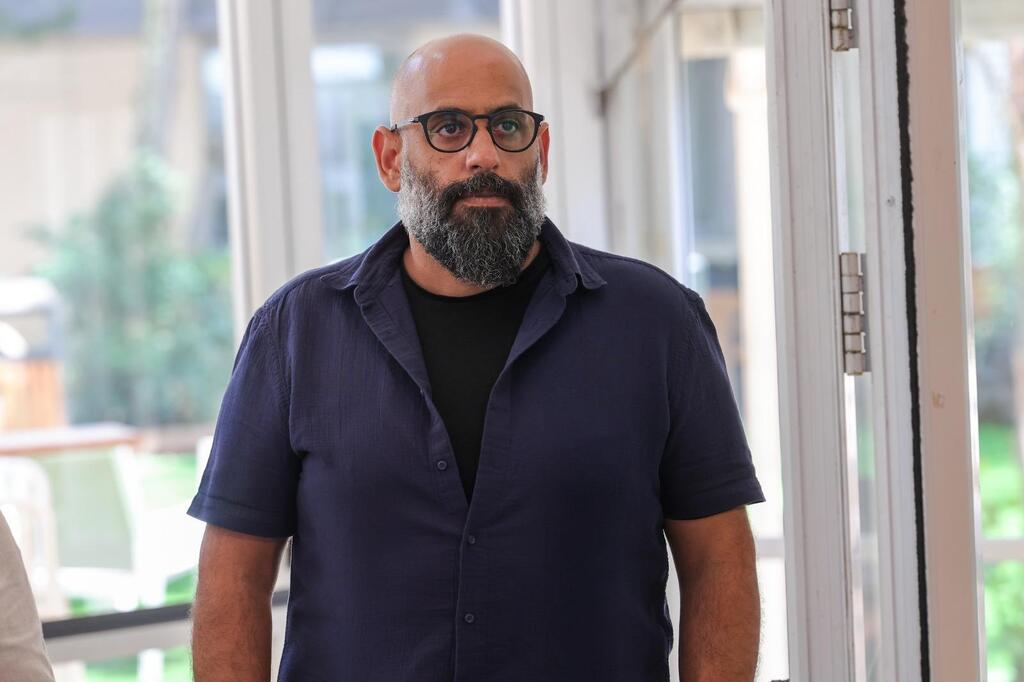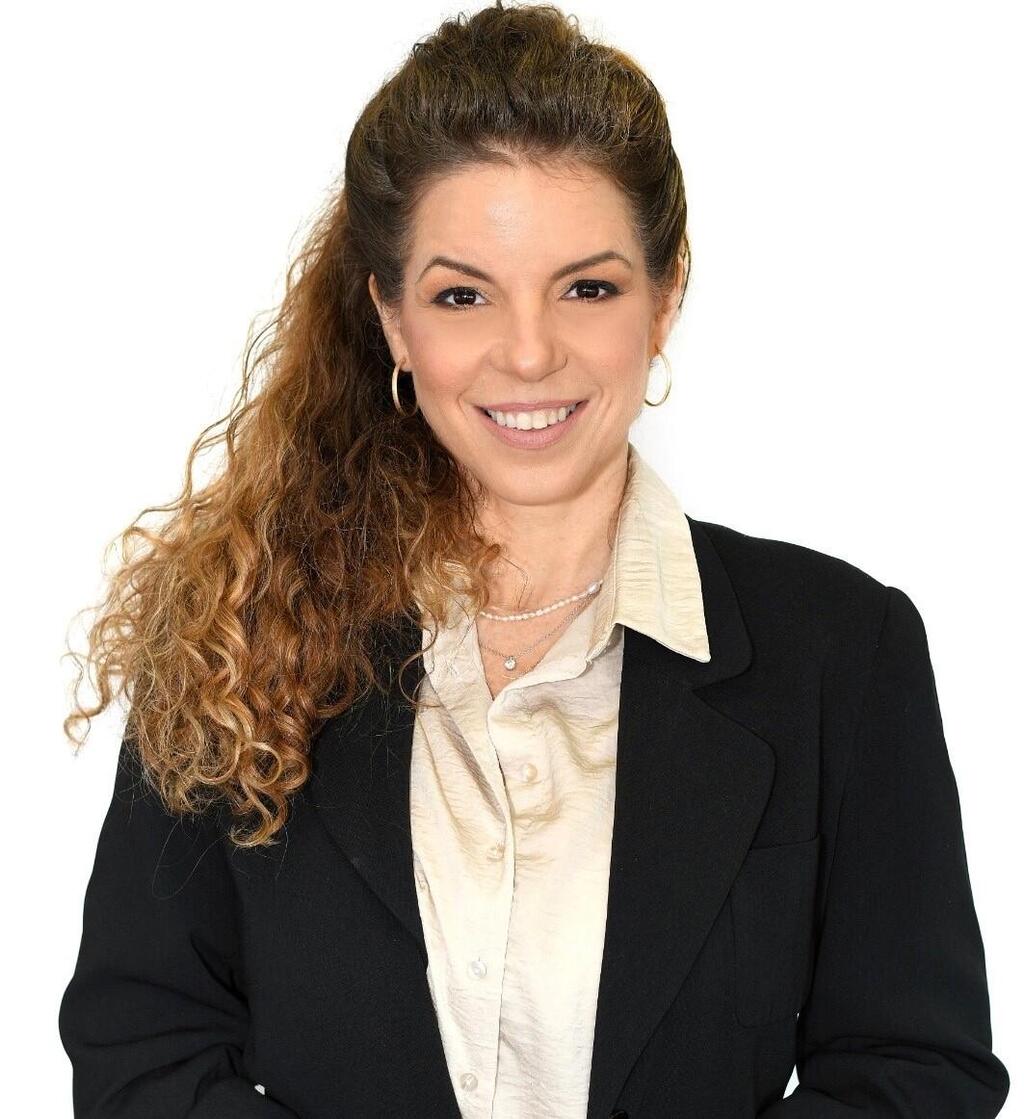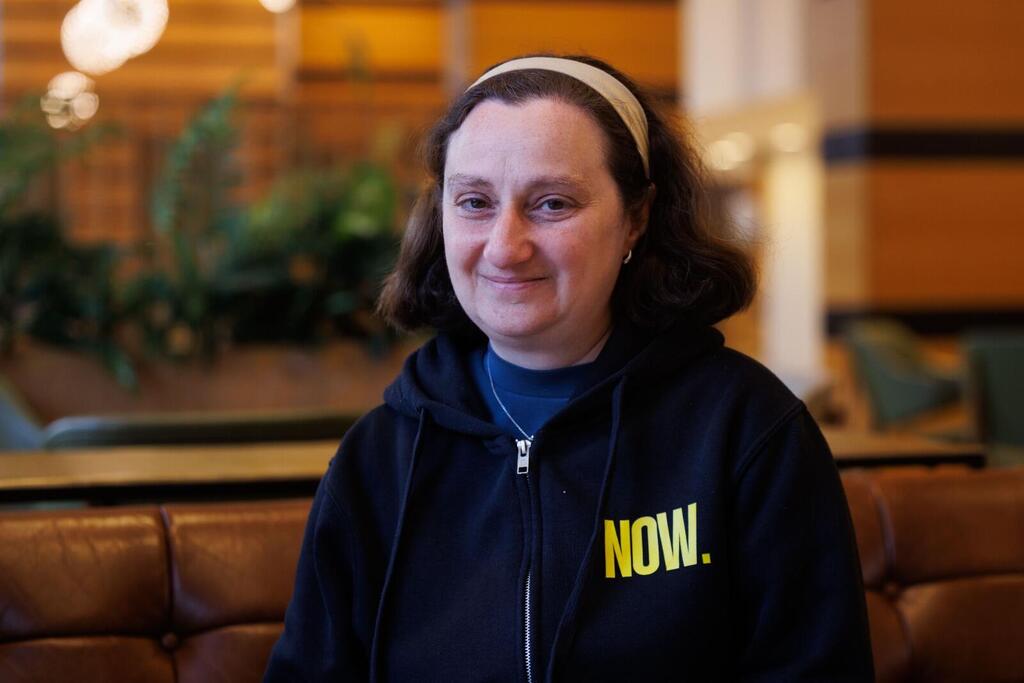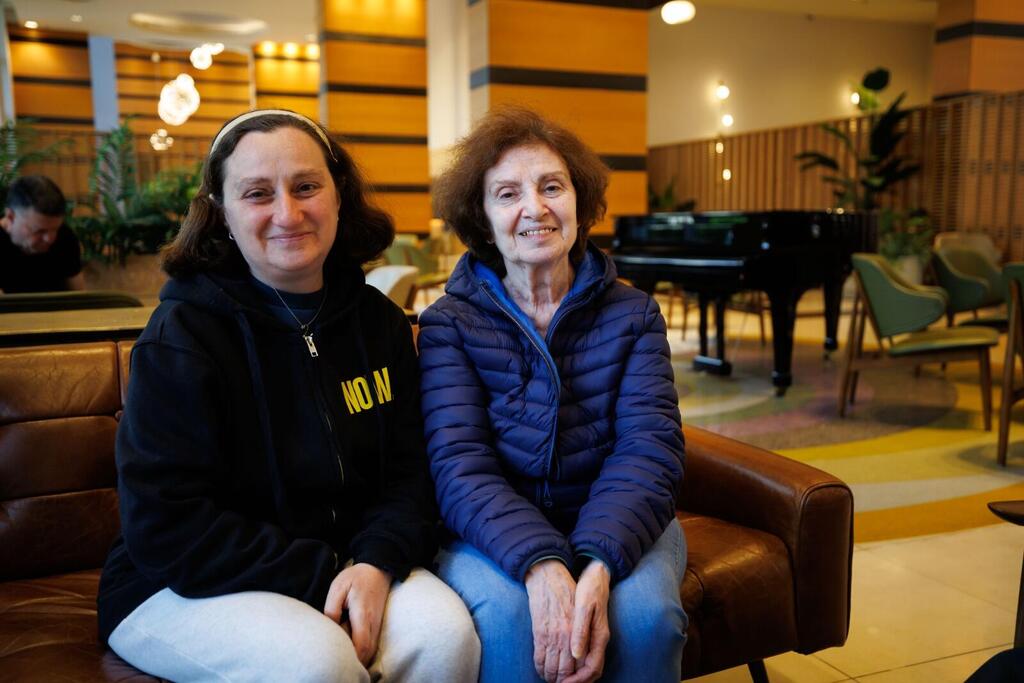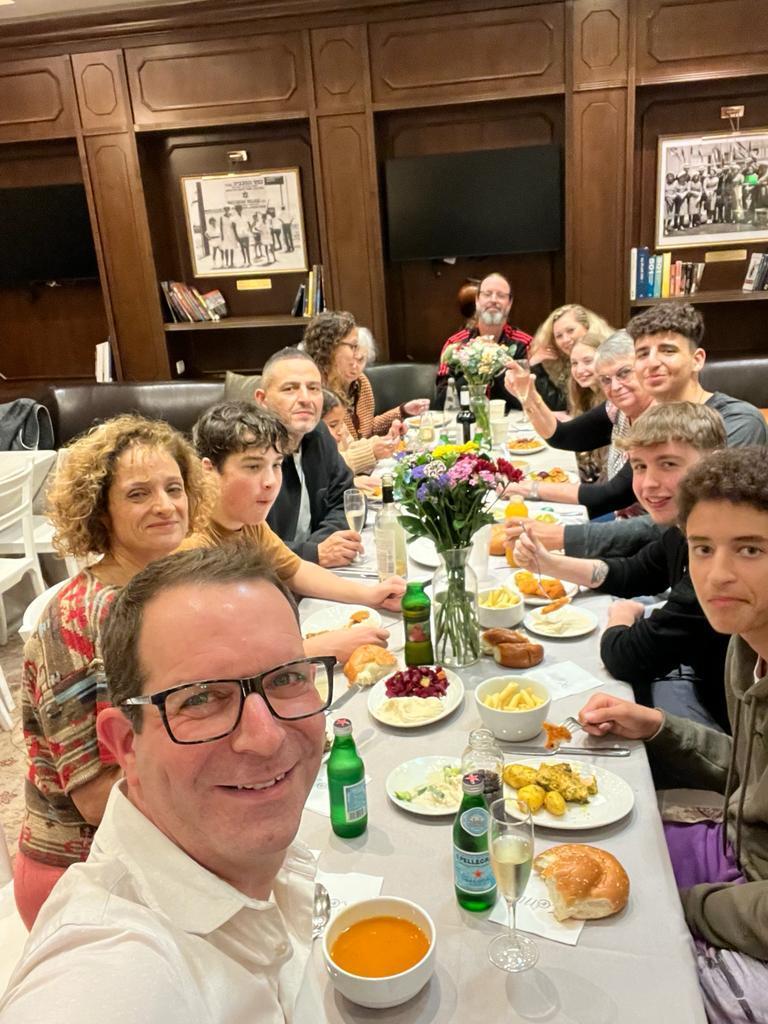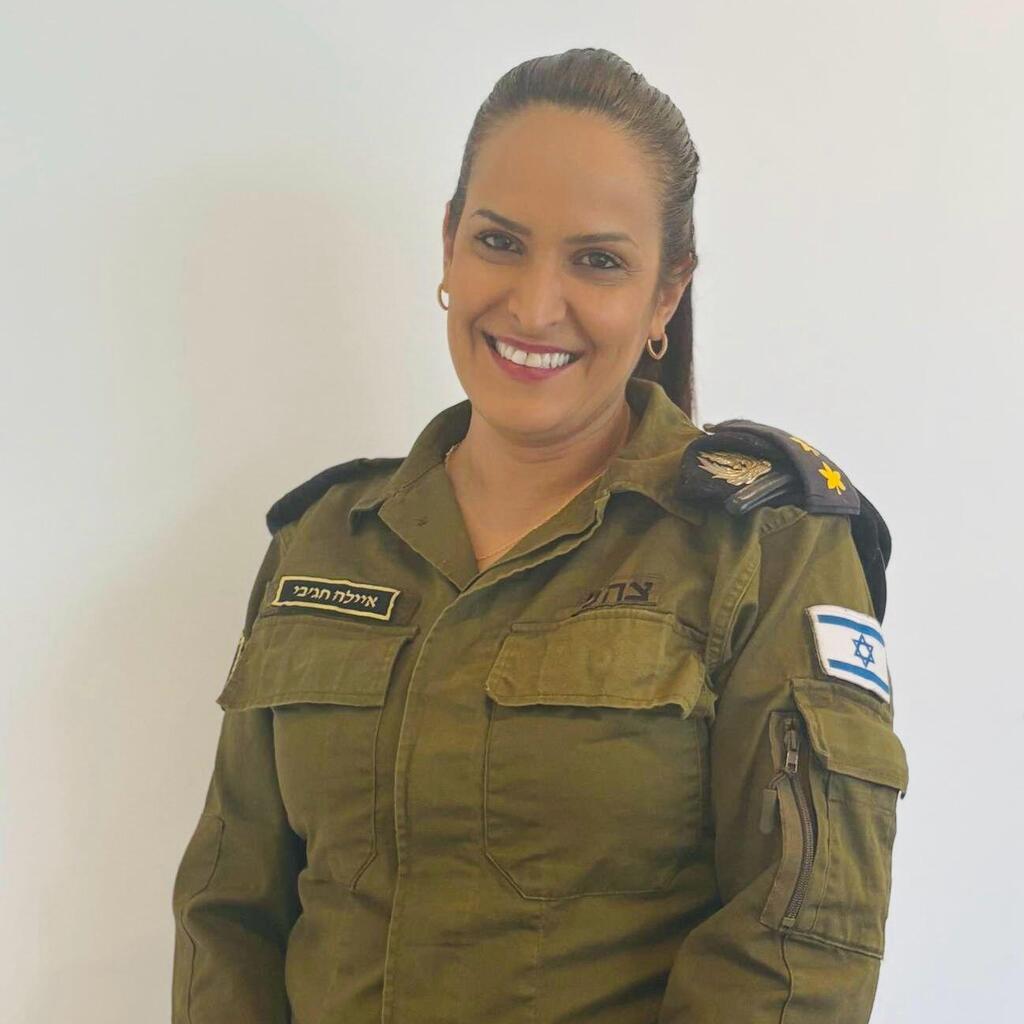Getting your Trinity Audio player ready...
Nestled in the heart of Ramat Gan, surrounded by lush greenery, Kfar Maccabiah has become a true home for released hostages and their families. What began as a temporary solution has since transformed into a well-coordinated initiative, offering not just a place to stay, but also safety, support, peace and a deep sense of belonging.
In a time of division, conflicting opinions and protests, the collaborations taking place here—between government offices, organizations, institutions and, above all, the dedicated teams and those who need them most—are both rare and deeply moving.
It all began on October 7, as the first sirens blared, and families fled their homes, many with nothing but a single bag. Maccabi World Union immediately opened the gates of Kfar Maccabiah.
“What began as a small village quickly grew into a big city,” said Galil Yitzhaki, CEO of Kfar Maccabiah, and Adi Sagi-Green, VP of Marketing. “We suddenly found ourselves housing around 1,000 evacuees, along with a school and daycare facilities for children of all ages, from infancy to 18.”
"Thousands of people found refuge here—initially because our existing facilities and services could meet their needs, and later, as we expanded to provide even more. Beyond shelter and meals, evacuees received educational support, with some even taking their high school graduation exams on-site. We also ensured access to healthcare, mental health services, communal dining areas and much more.”
As hostage release operations began, Kfar Maccabiah adapted once again—this time, becoming a reception center for those returning from captivity. “The Defense Ministry quickly began collaborating with us, and the partnership was incredibly strong,” they explain. “In practice, anyone who couldn't immediately return home found a safe space here".
Established in the late 1950s by Maccabi World Union, Kfar Maccabiah includes a sports center, conference facilities, and a hotel offering both standard rooms and, since 2008, a second wing featuring 120 spacious suites designed as full apartments. “It’s a unique hotel, unlike any other in central Israel,” they note.
Yocheved Lifshitz was the first released hostage to arrive at Kfar Maccabiah. In a heartbreaking turn of events, she recently completed here the mourning period for her late husband, Oded Lifshitz. Since then, more and more released hostages have passed through its doors—some for a short stay, others for a longer period.
“Kfar Maccabiah was initially chosen for its proximity to Sheba Medical Center, but it quickly became clear that it’s more than just a hotel—it’s part of a gated, green campus with open spaces and a peaceful atmosphere. It feels almost like a kibbutz—calm, welcoming and serene. Plus, it is owned by a non-profit organization with the experience and flexibility needed to adapt to this unique situation", they explain.
The process begins when the families arrive, sometimes the night before their loved ones are released,” says Liat Leiba, the hotel manager overseeing this complex operation. “First, we prepare a space where the family can watch the release together—especially for those who won't meet their relatives at the border. Later, after spending time in the hospital, the released hostages and their families make their way here.
From there, everything is adjusted to meet their needs. “We set up designated areas, creating private, comfortable spaces where they can feel at ease. Slowly, they start blending into daily life at the village—each in their own time, in their own way."
The faces we once saw on posters are now walking among us—it’s surreal,” they share. “They become part of our lives, and we become part of theirs. It’s something that moves us every single day, something we can never truly get used to. You sit down for lunch, see them eating at the next table, and you can’t help but wonder —where were they just a week ago? The contrast is unimaginable. Watching them slowly regain a sense of normalcy—sitting, eating, talking—it’s hard to grasp their journey, from what they went through to life here."
From your experience, what are the needs of returning hostages?
"Their needs vary from person to person —some prefer to eat alone, while others seek company. Some feel more comfortable staying in their rooms, while others crave social interaction. We pay close attention to each individual's needs and do everything we can to make them feel at home—that’s what really matters."
How does this shared experience affect you and the staff?
"The entire team has stepped up. Liat Leiba, the hotel and conference center manager, is here 24/7. As a staff, our role isn’t to ask questions or offer opinions—we’re simply here for them in whatever way they need. Sometimes that means a hug, sometimes it’s helping with something practical, and sometimes it’s just a quiet, supportive presence. Through it all, we feel honored to be part of this moment—it’s both a responsibility and a privilege."
'I have no other home'
Yelena Troufanov has been at Kfar Maccabiah since December 1, 2023—just two days after her release from 54 days in captivity in Gaza. “This is my home. I have nowhere else to go,” she says. “Our house in Nir Oz was completely burned down. When we first arrived, the place was full of evacuees, released hostages and their families. But over time, they all left—and we stayed".
Do you remember the day you arrived here?
"When I was released, they told me about my son Sasha, who had been kidnapped, and my husband Vitaliy, who was murdered. It was one of the hardest days of my life. When I left the hospital, they told me we’d be moving to a hotel, and I was really worried—I had no idea what to expect. But when we arrived, we were met with so much warmth. The rooms were amazing, and it instantly felt like home. So much so that we’re still here. I’m the longest-standing resident.
Yelena lives at Kfar Maccabiah with her mother Irena Tati, who was also held hostage. “The first time I saw my mom again was in the car on our way to the Red Cross. She had been held somewhere else, and I had no idea what had happened to her while I was in captivity. The day before my release, they brought in David Cunio, who had been with her, and he told me she was okay. But she didn't know anything about me. When she finally saw me, she didn’t even recognize me at first - because our faces were covered,” she recalls.
Get the Ynetnews app on your smartphone: Google Play: https://bit.ly/4eJ37pE | Apple App Store: https://bit.ly/3ZL7iNv
You also spent a lot of time here with Sapir Cohen, Sasha’s partner.
“Sapir was released a day after me. It felt like a miracle—she wasn’t even supposed to be in that group. I couldn’t have made it through without her. She was my support, my family— I don't have any other family. We were held together in captivity, sleeping side by side on mattresses. When we returned, we were inseparable, spending every moment together for over a year. We walked in the park, and we talked nonstop.
"At first, I felt completely lost. But having my mom, Sapir and her parents here with me—that saved me. We meet people, enjoy the open space, and share meals together. Here, I’m not alone. We know everyone, and everyone knows us—it feels like family. When the news broke that Sasha was coming home, the staff came to congratulate us and celebrate with us. Everyone came to see him and give him a hug.”
Yelena has mixed feelings about Nir Oz, the place she once called home: “I arrived at the kibbutz on Friday, just two days after my release, with my mom. However, Sasha doesn’t want to go back—he prefers to remember the kibbutz as before everything changed. My mom and I went there the weekend after we were released to care for the cats we used to feed. One of the cats, the one my mom was especially close to, came back with us. He’s still with us today - and it’s a huge source of comfort for her".
In the early morning, as the first light gently touches the green lawns of Kfar Maccabiah, one of the residents – someone we only knew from images not long ago - heads out for a morning walk along the shaded paths. Gradually, the dining hall fills up, and families gather around round tables.
At first glance, the scene seems perfectly ordinary— a woman passing bread to her daughter, an older couple pouring tea, and a group of young people laughing in a corner. But the knowing glances exchanged between the staff tell the true story. These are the faces that were once seen only on posters, the voices that were thought to be lost. These are small moments of freedom, and for the residents, they mean the world.
Ada Sagi from Nir Oz, who was released from Gaza after 53 days in Hamas captivity, spent about a month at Kfar Maccabiah. "I came here from Sheba Hospital with just two bags," she recalls. "That's when I realized I had no home to go back to, and this would be my home for now until I figure out where to go next". She describes her arrival as a "soft landing." "I received a two-room apartment, fully furnished with everything I needed, milk in the fridge, and when I asked for water, they brought me a six-pack. I didn’t have to do anything."
What was your experience like in the first few days?
"My sister stayed with me for two days, and then I asked her to leave. Being alone was important for me—it gave me time to process my thoughts. My family was always there, visiting either in the morning or afternoon. I set boundaries—no more than two visits a day and no more than two or three phone calls because it exhausted me. Everyone, wanting to understand and hear more, kept asking me to repeat my story. But I realized that talking and sharing actually helped me.
"They offered me so many options and services, from hairdresser to alternative therapies like acupuncture and shiatsu. I even went through a security check by the Shin Bet here. The staff was incredibly supportive and always ready to do whatever it took to make me feel comfortable. The relationships became personal—officers would come by just to have coffee with me. Even late at night, tired officers would stop by for a cup before heading to bed."
There must have been some tough moments during that time as well.
"Yes. One night, there was a thunderstorm, and I woke up convinced it was a rocket attack. I ran straight to the shelter, only to realize I was the only one there. That’s when it hit me—it was just thunder and lightning. I couldn’t stop crying. But in that place, even the smallest things felt huge—like the simple freedom to take a cup of coffee whenever I wanted. No need to ask, no waiting, just reaching out and taking it. That kind of freedom isn’t something you take for granted. This place meant, and still means, so much to me. It gave me the chance to start living again."
Neutral, discreet and unifying
Lt. Col. Ayala Hajbi, head of the Conscription, Officer, and Reserve Branch in the Israeli Navy, is currently overseeing Kfar Maccabiah and managing the personal support system for released hostages. She explains: "We provide a comprehensive support system under one roof—everything except medical and psychological care. Our primary role is logistical support, but equally important is the atmosphere we create—calm, neutral, discreet, and unifying. This place offers both the comfort of togetherness and the space to be alone when needed.”
Lt. Col. Hajbi, who leads a dedicated team of eight members available on-site 24/7, outlines the intake process: “Before a released hostage arrives, we connect with the family’s liaison officer, who understands their immediate needs. Our job is to provide full logistical support—everything from bringing them here to ensuring they have a comfortable place to stay. While their loved one is in the hospital, we make sure they have transportation to and from the facility.
From the moment a family receives the news—whether it's about a release or, tragically, the loss of a loved one—they can choose to come here and stay until the released hostage is discharged from the medical center. Every family has its own unique needs. Some need material support, but often, it’s something more. We recognize the shared experiences, but we also understand the unique nature of each situation.
At first, people are typically reserved, but after a few days, we grow closer. Over time, we truly become like family. That’s how I measure success—when they feel at home. Their comfort, their sense of belonging—that’s my benchmark.
Joining forces
Yael Goren-Hezkiya, Head of the Policy, Legislation, and Foreign Affairs Division at the Missing, Captive, and Released Hostages Administration in the Prime Minister’s Office, describes the preparation for welcoming released hostages and supporting their families, highlighting the collaboration between all key organizations involved —IDF, Ministry of Health, Ministry of Foreign Affairs, Ministry of Welfare, Ministry of Education, National Insurance Institute, and others, as reflected at the facility's operations.
“This process is based on close collaboration at every stage. We all sit together —IDF liaison officers, family coordinators from the Administration, rehabilitation specialists, social workers, and a dedicated nurse—to provide comprehensive support for the needs that arise. Some needs are broad, while others are more specific,” she explains. “Based on this, we've made adjustments, arrangements, and legislative changes to ensure we offer the most effective and complete support possible".
How is the initial intake process for released hostages carried out? "The IDF and security forces initially led the process, guiding them to the hospitals. During the first week, families receive support at Kfar Maccabiah or other nearby facilities. After that, responsibility shifts to the Administration and the rehabilitation and welfare teams, who assist with rights implementation, rehabilitation, hotel stays, and finding additional housing solutions. The Administration also supports families in tragic cases involving fallen hostages, working closely with Regional Councils, Welfare Services, and the National Insurance Institute. This includes helping with funeral arrangements, providing transportation, and offering support throughout the mourning period."
This might be a good opportunity to highlight the support provided by the Administration. "In collaboration with the Defense Ministry and the National Insurance Institute, the Administration has led a series of legislative amendments to ensure recognition and rights for released hostages and their families. During their stay at Kfar Maccabiah, they are introduced to the various benefits available to them.
For example, under an amendment to the Law for Released Captives and Hostages, they receive a lifelong monthly stipend of 3,300 shekels. In addition, they are automatically granted a 50% disability status, entitling them to an extra monthly allowance of approximately 5,000 shekels - bringing their total base support to 8,300 shekels per month.
This disability status also provides a wide range of additional rights, including municipal property tax and electricity discounts, tax exemptions, assistance with purchasing a home or covering rent, educational funding, vocational rehabilitation, professional training, and full coverage of all necessary medical treatments. Moreover, during the first year after their release, they receive a monthly medical care stipend equivalent to their pre-captivity salary. If they were unemployed before captivity, they are entitled to a minimum monthly allowance of 7,000 shekels.
Furthermore, a recent amendment ensures that all released hostages are automatically recognized with a 100% disability rating, removing the need for bureaucratic procedures or medical committee evaluations. As a result, their disability allowance and associated benefits increase to approximately 9,600 shekels per month. Combined with the stipend for released captives, their total lifelong monthly support reaches 12,900 shekels."
Goren also highlights another legislative initiative: “A new law acknowledges the families of released hostages, providing them with a comprehensive support package, including psychological, vocational, and medical rehabilitation, along with a financial grant to help them adjust. These benefits and entitlements also extend to the families of fallen hostages, who are officially recognized as bereaved families.
"Now that their loved ones have returned, these families can finally focus on their own well-being," she explains. "During the captivity, they had access to extensive support, but the circumstances made it difficult to fully make use of it. We hope that now, both the released hostages and their families can begin to heal and rebuild their lives in the best way possible."
First published: 06:45, 04.07.25



